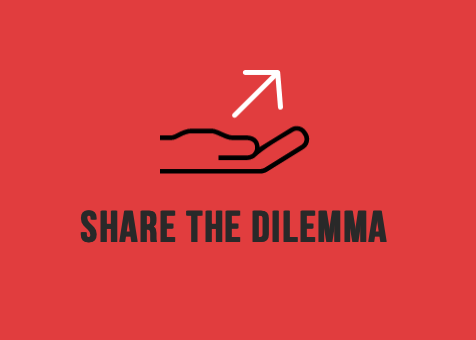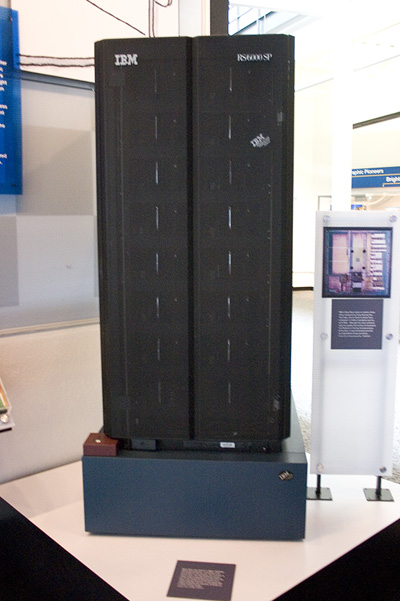
When I quit Twitter on Wednesday, 0.000021% of the world’s population (7.8bn) were following me (1600 followers). You laugh, but even if you were a global health social media god with 150,000 followers, that would still be an all-but-invisible 0.0019% of just about everybody. I quit because I watched The Social Dilemma (TSD) on Netflix (an irony not lost on my students today when we discussed the documentary during our webinar) and realised that I was addicted to this particular brand of social media.
Well, maybe it wasn’t quite as causal as that. I had already read Richard Freed’s 2018 article in Medium The Tech Industry’s War on Kids, so I was aware of some of the issues raised in the documentary. And I’d noticed a few people had also left or were threatening to leave. I was also becoming increasingly agitated, overwhelmed and – frankly – depressed at the relentless bleakness of my timeline. So it was already on my mind; perhaps the documentary was just the push I needed.
I’m not sure it posed me with a dilemma, though. A dilemma occurs when you have to make a difficult choice between two alternatives. In the case of social media, it’s not clear (yet) what that choice is: what do you gain; what do you give up? Or indeed that a choice needs to be made. Drinking alcohol increases the risk of cardiomyopathy and cirrhosis; smoking tobacco increases the risk of lung cancer and heart disease. But social media? What are the risks associated with that?
There’s a scene in TSD where a teenage boy – Ben – gives up his mobile phone for a week (or does he?) on the promise of a new screen to replace the one broken by his younger sister. A few minutes later we see him pacing his room. We then follow him to school where he begins to feel increasingly isolated from his friends. It’s painful to watch.
I wish I could say that I know how he feels. I haven’t slept well since Wednesday; I feel anxious that I don’t know what’s going on in the world; I feel virtually alone – I actually liked some of my followers; and I don’t know what to do – my body is still going through some of the physical motions that I wasn’t aware I was doing, like picking up my phone when there’s (now) no need to. I also know – damn you Twitter – that I still have until the beginning of November to reactivate my account. But I’m not 16.
Although the effects of social media are felt by all age groups, the focus of the documentary – and research generally – is on younger age groups. Young people are telling us that social media exacerbates feelings of anxiety, teenagers are reporting psychological distress from heavy social media use and research has identified “a significant association with increased depression” amongst 20-30 year olds. The documentary cites some disturbing data from the US CDC on the increased rate during the last decade of non-fatal self-inflicted injuries by teen and pre-teen girls. I wasn’t able to identify the exact source, but there is plenty of research illustrating this. Body image, self-esteem, social media, Instagram. It’s not particularly difficult to join the dots.
Excessive Instagram use may contribute to negative psychological outcomes and poor appearance-related self-perception, in line with prior research.
Sherlock, M., & Wagstaff, D. L. (2019). Exploring the relationship between frequency of Instagram use, exposure to idealized images, and psychological well-being in women. Psychology of Popular Media Culture, 8(4), 482–490
A significant part of my life passed without the internet; without mobile phones; without social media. Arguably, it’s easier for me to leave social media behind than it is for someone who’s identity is now so heavily influenced by it. Perhaps when Ben is in his 50s, he will look back to the young people of his day and make a similar nostalgic reflection (“ah”, he might say, “but I lived in a world when you held mobile phones in your hands and when Bezos couldn’t access my dreams. It’s easier for me to give it up”).
It is disturbing that many of those interviewed in TSD are – or were – insiders; people who were responsible for the coding behind such things as the Facebook ‘like’ or the algorithm that detects your own personal ‘rabbit holes’ and then does everything it can to identify more and drag you down into them (“it is getting smarter” we are told/warned). Here’s a list of the experts interviewed. They know what social media is, what it’s for and what it does because they designed it. At the end of the documentary, they are asked ‘would you let your kids use social media’. Let’s just say they weren’t enthusiastic about the idea.
Ok, so tell me if you’ve caught yourself saying this: Oh, I use Twitter for work; it gives me real-time information; I have to know what’s going on. Those were the lies I told myself. And I would convince myself that I did know what was going on. I didn’t of course. I just read the stuff that the Twitter algorithm fed me. And at what cost? Three hours of screen time a day (that I am writing three hours means that it was more likely four-five hours)? Twitter was using me. I was riding a wave knowing that if I stopped paddling, I would sink behind it and watch it roll into shore without me. You should see my collection of folders of pdfs on my computer – oh my god! It’s like John Nash’s office wall. Every twitter link is curated: every single report and document, every newspaper article pdf-ed, every ‘relevant’ tweet dutifully re-opened incognito on Safari so it could be saved-as and reviewed later. Was I the only one doing that?
Maybe you think that by tweeting Horton’s latest Offline comment online you’re doing some kind of service; that you are amplifying a particular perspective that you want others to share? Well, yes, you are doing that but you are also signalling. Signalling is where you ‘signal’ to others by retweeting or liking tweets that you belong to a particular group of people. Academics are the worst at that! Bergstrom and West argue in their book Calling Bullshit that “the signal itself becomes the point” (Ch2, p27). You may not be sharing conspiracy theories but how many of you retweet a tweet reflexively because – at some level – it’s from a person with whom you want to be associated, and who you want others to know you are associated with? I did that all the time.
But that’s ok. Signalling is a perfectly natural human trait. The problem is that social media – Twitter – exploits the fuck out of it and, by extension, it exploits the fuck out of you. I think that’s what did it for me. The realisation that I was being manipulated. I kind of thought I was clever, you know. That I would be somehow above all of that. Not. A. Chance.
Social media is fun; Twitter is fun; drinking is fun; gambling is fun – until it’s not. I think we’re only just beginning to realise the dangers of social media – for all generations but especially the generations to come. But we haven’t yet recognised just how dangerous social media is. The word that worried me most in the documentary was a word we have all come to appreciate these days – exponential. In the documentary it is used in relation to the rate of improvement in artificial intelligence.
Perhaps the most dangerous piece of all this is that it is driven by technology that is advancing exponentially.
Randima Fernando (Founder, Centre for Human Technology)
I’m not sure whether computer processing power is still increasing exponentially but it was growing at that rate throughout the first decade of the new century. If you believe Randima, since the 1950s processing power has grown by a factor of a trillion. I don’t think I really appreciated just how powerful computers are these days. If algorithms are indeed “opinions embedded in code” and if there are really now only a handful of people alive who know most (that’s most, not all) of what those algorithms are doing, then maybe we should be taking this a little bit more seriously than we currently are? They have become extremely good at shaping our behaviour – how much better will they get?

The Social Dilemma presumes that we, individually and collectively, are faced with a dilemma. It doesn’t make the case for social media, so it’s not clear what we are giving up. Instead, it presents social media as a personal addiction, a curse, a parasite even – one that threatens to subvert, redefine and replace social norms and values. And not in a good way. So I guess there are two dilemmas: rejecting social media or keeping it OR accepting social media but managing it.
But there’s a catch. If algorithms are becoming increasingly adept at identifying ‘rabbit holes’ for us to fall into, and then dragging us down into them, it will become increasingly difficult for successive generations of ‘users’ to extract themselves. We were confident that Deep Blue could never beat Kasparov at chess and DeepMind could never beat Fan Hui at Go. But they did – easily. Is it still hubris telling us that a single mind is capable of resisting a warehouse full of super computers?
Look, it’s World Mental Health Day tomorrow so why don’t you do yourself a favour and take a break from social media for a while.
Andrew
P.S: I’m now in the weird position of not being able to share this post via social media. Cool!
Since writing this post, and instead of spending my time on social media, I’ve read the following books:
– Utopia for Realists by Rutger Bregman
– Humankind, also by Bregman
– Calling Bullshit by Bergstrom and West
– Less is More by Jason Hickel
– Climate Change and the Global Green New Deal by Pollin and Chomsky
– The Future We Choose by Figueres and Rivett-Carnac
– The Great Derangement by Amitav Ghosh
– Now reading: Net Zero by Dieter Helm